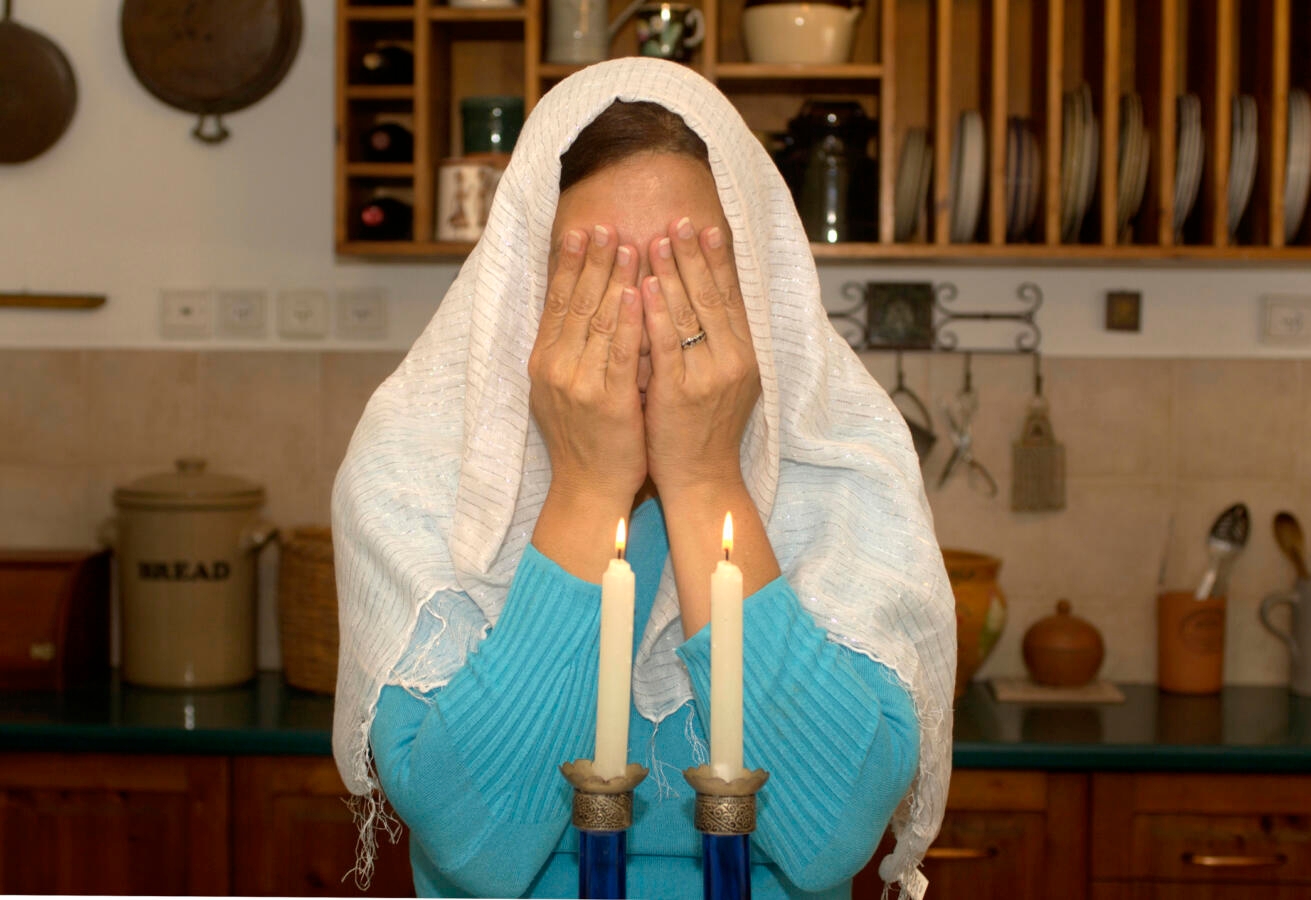For thousands of years, Jews have kept one day in seven as the Sabbath — the day of rest. Among the many benefits of Shabbat (including the opportunity to recharge ourselves physically and spiritually), one that we don’t often consider is the grounding it can provide, especially in times of uncertainty. Part of the reason is that each and every week Shabbat arrives at a predictable time and with a known structure and set of rituals. This can help us organize our lives and manage our stress. And because Shabbat comes at the end of a work week, it helps us recharge and ready ourselves for the next week ahead.
Having Shabbat at a prescribed day and time each week means we can’t postpone Shabbat. (We all know what happens when we start putting things off for another day — they often never happen.) Shabbat comes no matter what we do and each week we have the opportunity to meet it. Also, Shabbat creates a sense of community with Jews all over the world and throughout history.
Families observe Shabbat in different ways, so it’s worth taking a look at various aspects of the rituals so you can decide what works in your family, or what adjustments you might like to make. For me, the rituals of Shabbat dinner are particularly stabilizing and nourishing (spiritually and literally!).
With your help, My Jewish Learning can provide endless opportunities for learning, connection and discovery.
Lighting Candles
Lighting candles marks the beginning of Shabbat, with light as positive symbolism. Some families use the candle lighting time to bless their children. Storyteller Eva Grayzel asks each of her children how they brought light into someone else’s week and then how someone brought light into their week. The candles burn for the rest of the evening, setting a tone and atmosphere.
Learn how to light Shabbat candles.
Refraining from Electronics
Shabbat is a day to avoid work. In traditional Jewish interpretation, this means 39 categories of forbidden labor which modern rabbis have interpreted to include most uses of electronic devices. In our era, it’s no secret that we could all use a break from our screens to focus on the people in our lives. No television, no internet, no cell phones, no iPads — no electronic encroachment during the family Shabbat meal makes it special.
Of course, some people worry about being completely cut off from their electronics. Suppose, for instance, you are on call for our older parents. You can still choose to shut other screens and check the caller ID when the phone rings, or set up a ringtone that alerts you to those calls you absolutely must take for reasons of health or safety. Jewish law would support this choice since pikuach nefesh, saving a life (often interpreted very broadly to include such scenarios), requires that we in fact violate Shabbat’s work prohibition to protect life.
A Special Dinner
Shabbat dinner is supposed to be a special meal, which can mean many things. One way to make the Shabbat dinner distinctive is to serve certain foods only on Shabbat. In many households, Shabbat is the only time fresh challah is served. Some families only have chicken, or fish prepared in a certain way. Maybe Shabbat is the only night we have two kinds of starch and no green vegetables, or we have a favorite ice cream or some other special dessert. Shabbat can be “special pickle night,” or the night we have four different kinds of olives. Or it can be the night that always has a special element to the meal, but never the same thing two weeks in a row.
Or, perhaps the spirit of Shabbat is that everyone contributes to some aspect of the meal. “What are you going to do to help our Friday night dinner this week be special?” is a great question to ask everyone in the family. Sometimes it’s as simple as, “I won’t complain.” (For many parents, a complaint-free meal constitutes a deeply religious experience, restoring faith in the Almighty.) Other contributions may be to do part of the prayers, teach a song, make decorations, prepare the table or part of the meal in some way, or help clean up.
We live in a fast-paced world. Our lives are busy and hectic; our jobs are demanding and our children have activities galore. It’s not easy to find time when everyone can sit down and eat dinner together. Yet, there is strong research evidence that when families dine together, children are better adjusted socially, get better grades and less likely to use drugs. It makes sense: When we eat together, we learn how to socialize with each other and build stronger bonds with one another. When we eat together, we have the opportunity to reflect on our day and to help each other solve problems.
While Shabbat begins at sundown and the meal comes soon after, this can sometimes be a problem as the seasons change and sundown interferes with the end of the workday — or comes long after tummies are hungry. But the idea of selecting a set time for the meal, whatever it is for your family, helps everyone prepare for the arrival of Shabbat and adjust their schedules accordingly.
Tips for hosting a beautiful Shabbat dinner.
End the Meal with Thanks
A final element of the Shabbat meal is that after everyone has finished eating, we don’t run from the table but give thanks. This traditionally takes the form of Birkat HaMazon, a blessing of thanksgiving for the food just consumed, and singing special songs (zemirot) after the Shabbat meal. As with the meal itself, families benefit from finding their own meaningful songs to include in this ritual, in addition to or instead of some of the traditional Shabbat and holiday songs. Perhaps you will even adapt contemporary melodies to the words of traditional songs or put new words to traditional melodies. When our kids were growing up, our family ended each Shabbat meal with Adon Olam sung to a different tune. As our daughters got older, selecting the tune became a cherished assignment. However your family does it, there is great value in making sure that the way in which we leave the meal experience is also special on Shabbat.
Shabbat Reduces Stress, So Give it a Try
One way that we reduce our stress and endure our worries is by focusing on something else. In that sense, Shabbat provides a powerful ritualized distraction that serves to calm us down and help us feel more secure. We will all sit down to eat together. We take our time. We prepare. We reflect. Parents take the time to bless their children. We give thanks despite our troubles. We connect with elements of our tradition. We make the mealtime special. It becomes something that members of the family look forward to, each for their own reasons. And it happens every week because we don’t set the schedule — it was set for us thousands of years ago.
If you’re new to celebrating Shabbat, I recommend you take it slow. Make changes gradually, but stick to it and you will find that you and your family will come around to some variation of a Shabbat ritual that fortifies you and your connections to one another. And don’t worry about doing it “right.” Start out however you can and allow yourself and your family to grow into the experience. As the Hebrew essayist and secular Jewish thinker Ahad Ha’Am once wrote: “More than the Jews have kept the Sabbath, the Sabbath has kept the Jews.”
Read: Seven reasons to observe Shabbat.
Sign up for My Jewish Learning’s RECHARGE, a weekly email with a collection of Shabbat readings and more to enhance your day of rest experience.



